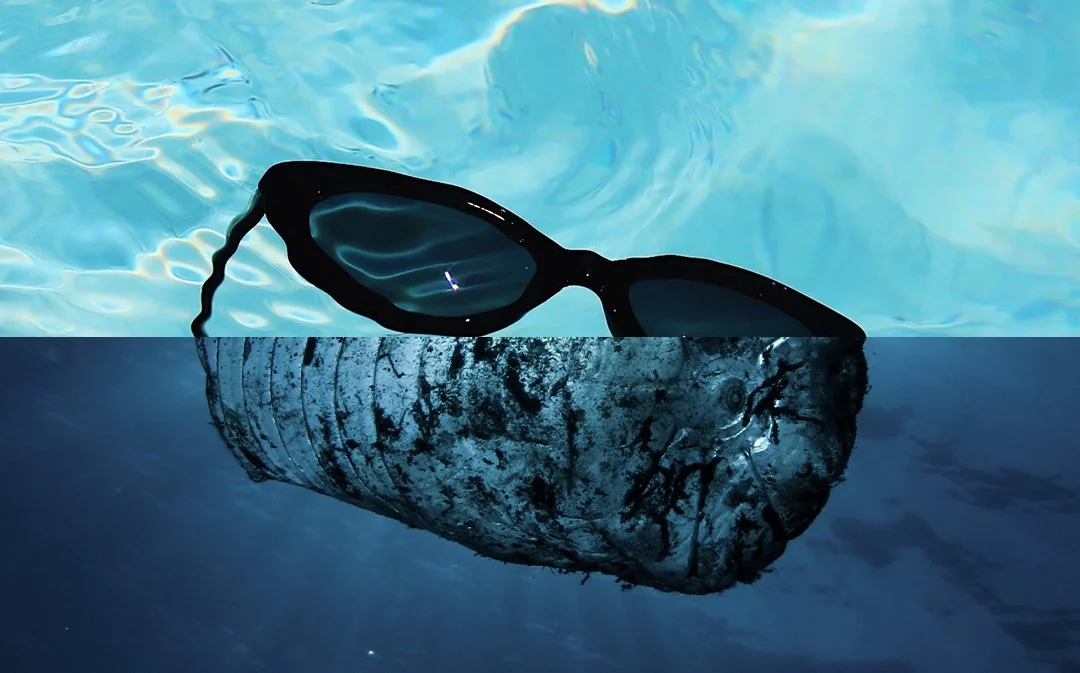The destructive, symbiotic relationship between the beverage and fashion industries.
11-14-2021
Greenwashing 101 — Recycled plastic bottle clothing is not sustainable.
I don't know where I first spotted it, but it seems like almost every brand is selling the same claim: “Our recycled polyester saves bottles from landfills!” Sounds awesome, except for one thing, it doesn’t appear to be true.
To unpack this claim, we need to understand how the recycling system actually works. When we place our used plastic bottles (the PET that comes with the number 1 in that recycling symbol) into the recycling bin, it gets collected and brought to a Material Recovery Facility (MRFs) where it is sorted, separating things that can get resold (and actually recycled) from things that have no economic value and will be trashed. Thanks to the promotion of a hyper-convenient lifestyle and the beverage industry’s lobbying efforts against legislation that would improve things, our recycling rate of these bottles is a measly 27.9%. (Recycling Today).
Source: Target
Of the plastics that do come in, MRFs especially love our PET plastic soda bottles because there is a robust market for the stuff. Not only are they able to be sold, there is stiff competition for our used plastic soda bottles.
Who is competing for our old plastic bottles? Apparel and footwear companies like Nike, Gap, Target, Amazon, J.Crew, Shein, Zara etc. AND beverage companies like Coke, Pepsi, and Nestlé that were responsible for creating those bottles in the first place. Coke currently produces over 120 billion plastic bottles a year (Greenpeace). These beverage companies have their own targets for recycling, as environmental organizations have brought attention to the issue of plastic pollution and states have started to impose recycled content minimums. (Good job, California and Washington!) Coke’s target is to use 50% recycled material in their packaging by 2030 (Coca Cola).
In fact, according to Tim Carey, the senior director of sustainability at PepsiCo, which purchases almost half of all bottle grade recycled PET (rPET) sold in the US, the competition is so stiff that:
“There isn’t enough rPET available. If there was more on the market we could put more in [to our own packaging].” (The Atlantic)
These two industries compete with one another on a limited resource and only one industry can keep that plastic circulating: the beverage industry. A plastic bottle can become a plastic bottle again. A plastic bottle that becomes a pair of shorts or a sweater can’t be turned into anything at the end of its life. It’s just trash.
To sum up:
The beverage industry generates prodigious amounts of single use plastic while promoting a single use lifecycle. Of the limited PET that does make it into the recycling stream, the fashion industry competes with the beverage companies, where the fashion companies downgrade the plastic into clothing, which becomes trash while the bottling industry can at least turn that bottle into another bottle again.
In none of this is the fashion industry “saving” any bottles from landfills.
That fate is already largely determined when we choose to put the bottle in the recycling bin or just throw it in the trash. We could also improve collection rates by implementing bottling deposits (this incentivizes people to pick through trash to recover bottles to redeem for a fee) which is the method to actually get bottles out of landfills. But neither the beverage industry nor the fashion industry is lobbying to get those laws passed. (The beverage industry lobbies hard against them, as a matter of fact).
While not diverting bottles from landfill per se, some recycled polyester producers are working on increasing collection rates. Unifi has introduced Repreve Our Ocean, which actually works on increasing collection of plastic. In this case, plastic that is within 30 miles of oceans. If a fashion company wants to make credible claims about their recycled polyester, they should be paying for investments in increasing plastic collection, like Repreve Our Ocean does. And if they really wanted to help, they would lobby for laws that would slow the flow of plastic or, at a minimum, increase collections, like bottling deposit laws.
Source: Nike
Source: Boohoo
So, that recycled plastic bottle jacket is not saving bottles from landfill, and it's certainly not sustainable. The fashion industry needs to stop saying otherwise.
💡
We are here to help
We need brands to have clear communication and most importantly a clear-eyed impact reduction strategy. Meaningful, measurable progress is possible. There is no more time to waste.
Are you a brand and need help? We are here.
Reach out at: hello@newstandardinstitute.org.






